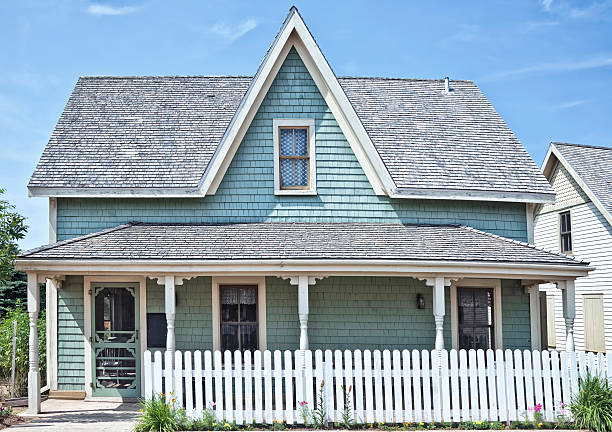There’s no “right” age to buy a home, but it’s smart to evaluate where you are in life as you decide whether or not to buy. A lot of people consider buying a home to be their biggest investment, and having a home can either help or hurt your financial situation. Your quality of life is most likely affected by where you live.
Table of Contents
When Should You Buy?
As long as the circumstances are favorable, purchasing a home can potentially be advantageous to you at any age, young or old. You might be ready to buy when, at a bare minimum, you:
- Can comfortably afford the monthly payments and other recurring expenses of homeownership.
- Can get approved for a good loan.
- Plan to keep the home long enough to recoup transaction costs from buying and selling, as well as recover from any price declines.
- Can afford the risks, including surprise maintenance expenses or your home losing value in a weak market?
- Are ready for the responsibility of owning and maintaining a home?
None of that is meant to imply that if you don’t buy a house by a certain age, you’re being careless. A costly, time-consuming, and frustrating endeavor, home ownership can be. Despite the difficulties that come with renting, when your only commitment is a six-month lease, packing up and moving out is much simpler.
Signs You Are Ready To Buy A House
Fundamentally, the age at which you can legally purchase a home is less significant than the other indications that you’re prepared to do so. Here are a few things you should have that show you’re ready to buy a home:
A solid debt-to-income ratio (DTI). An important calculation that mortgage lenders use to determine your loan eligibility is your DTI. You might not be able to get a mortgage if your debts, such as student loans or credit card debt, are greater than your income.
Down payment savings. FHA loans require a minimum 3.5% down payment, while conventional loans require a minimum of 3%. Borrowers must make a 20% down payment in order to avoid paying private mortgage insurance (PMI).
The availability of additional funds. You’ll need enough cash to pay the closing costs and other home purchase fees in addition to saving for a down payment.
Income stability. For the purpose of making monthly payments and covering expenses like homeowners insurance, property taxes, and maintenance, a steady income is required.
A high enough credit score. To qualify for a mortgage and an affordable interest rate, you need a good credit history showcasing how well you repay.
Geographic stability. When you know you’ll be in the area for at least a few years, it’s best to purchase a home.
When Do Most People Buy?
Although it’s important to live your own life, it might be useful to know when other people typically make purchases. The fact that homeownership rates rise as people get older may be a valid reason. According to the U.S. Census Bureau, homeownership rates by age in late 2022.
| AGE RANGE | HOMEOWNERSHIP RATE |
|---|---|
| 35 to 44 years old | 61.0% |
| 45 to 54 years old | 69.8% |
| 55 to 64 years old | 76.0% |
| Age 65 and over | 80.2% |
The average first-time homebuyer in 2022 was 32 years old, according to the National Association of Realtors. However, those buyers had a median income of $75,000, which made them comparatively more fortunate than most.
Reasons For Buying Young
Getting an early start could have a number of advantages if you want to buy when you’re young and have the means to do so.
Price Appreciation
Real estate can act as a hedge against inflation, provided your property keeps up with rising prices. While there is no guarantee that your home will appreciate in value, this is what happens frequently over the long term. Price growth may aid in your wealth accumulation, particularly in robust markets with lots of potentials. But it’s safest to buy a home as a “home” that you want to live in—not as an investment.
Build Wealth
Owning a home is a way to raise your net worth, assuming everything goes according to plan. The “forced savings” of your monthly payments helps you build equity in the property, which you can use for another property or other needs later in life. Instead of giving 100% of your monthly housing payment to a landlord, you “save” a portion of each payment.
A Place Of Your Own
Owning a home gives you control. You can alter the look or the design to suit your tastes, make additions that are worthwhile, and establish stronger ties with the neighborhood where you live. In order to receive your security deposit back, you don’t need the landlord’s approval or to undo all of your good deeds. However, before you buy, find out if there are any potential restrictions due to local ordinances or HOA rules.

Reasons For Waiting
It’s okay if you don’t feel hurried. There are several benefits to holding off on purchases. It can be difficult to settle into a new place and move, and you typically incur costs when you sell a property.
Financial Strength
Age-related increases in income are common (but not universal)4 and make it simpler to purchase the things you want without having to make significant financial sacrifices as you enter your higher earning years. Instead of being “house poor” and dealing with your property in your 20s and 30s, you can spend those years saving for a big down payment, traveling, or doing anything else you want. Furthermore, you can improve your credit over those years, increasing the likelihood that you’ll be approved for the best loan possible.
Ore Certainty
With age, your ideal home becomes more distinct in your mind. The future is always uncertain, but you gain more clarity on several crucial factors as you age:
- Your work location, or your ability to work remotely
- Your income available for housing payments
- The size of your family, if any
- What you really need, and what you’re willing to live without
Can A 16- Or 17-year-old Purchase A Home?
They could theoretically purchase a home on their own if they had early emancipation, which is possible as early as age 16. However, early emancipation means that a person is treated as a legal adult for all intents and purposes and that parents are no longer required to provide for that person. State laws differ, but generally speaking, any contracts signed by children under the age of 18 do not bind them. This can be a little tricky because, while lenders do not discriminate on the basis of age, the minimum age is the age at which the mortgage note can be legally enforced in the state where the property is located.
Can A Parent Cosign?
If the borrower is over 18 and needs a co-signer because they are just starting to establish credit and need some assistance getting started, that is typically acceptable as long as all other customary rules are followed. If the borrower is under the age of 18, the parent must be the legal signature.
When we discuss estate planning, trusts, or inheritance, things become a little bit murky. A real estate lawyer should be consulted in each individual case to handle this. There are many variations when it comes to minors getting financing and real estate. In the case of a straightforward title transfer, a real estate lawyer should be able to explain the prerequisites and legalities in your state.



